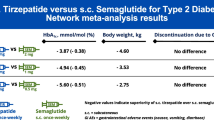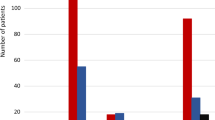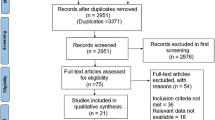Abstract
Objective: This report describes all clinical, laboratory and electrocardiographical adverse events detected in healthy volunteers in a phase-I centre over a 10-year period: 54 phase-I studies are involved, including 1015 healthy young volunteers (993 males) who received 1538 treatments (23 different active drugs or placebo) corresponding to 12143 days of follow-up. This updates a similar report published previously in the European Journal ofClinical Pharmacology.
Methods: Adverse events were defined as all events noted in case-report forms. Incidence of adverse events was defined as the ratio between the number of adverse events and the number of follow-up days. Severity was rated as death, life-threatening, severe or minor. Incidences or occurrence rates were compared using the Chi-squared test with Yates' correction.
Results: The overall incidence of adverse events was 12.8% with a significant difference between active-drug (13.7%) and placebo (7.9%) treatments. There were 1558 adverse events of 110 distinct kinds. Only for three (headache, diarrhoea and dyspepsia) was the incidence superior to 10‰. Most of these adverse events were also observed with placebo. Ninety-seven percentage of adverse events were of minor intensity; forty three (3%) were rated as severe, including nine worrying cases – six malaises with loss of consciousness, one atrial fibrillation, one hyperthyroidism and one bicytopenia. Some of the adverse events were not related to the tested drugs, but to a vagal reaction or to study conditions. There was no death or life-threatening event. The global rate of occurrence was one adverse event per treatment, one and a half per subject and one out of eight follow-up days. No difference in the overall incidence with placebo was observed between the two successive 5-year periods.
Conclusions: This report confirms that adverse events in phase I studies are very common, usually of minor intensity and rarely severe; even though exceptional, life-threatening adverse events are possible. Adverse events occuring in phase I are rarely published, leading to lack of information. Thus, authors invite clinical research organization (CROs) and phase-I centres to regularly publicise at least severe adverse events; they also suggest that the life-threatening adverse events reported to health authorities should be publicised, for example by the World Health Organization (WHO).
Similar content being viewed by others
Author information
Authors and Affiliations
Additional information
Received: 23 April 1997 / Accepted in revised form: 31 October 1997
Rights and permissions
About this article
Cite this article
Sibille, M., Deigat, N., Janin, A. et al. Adverse events in phase-I studies: a report in 1015 healthy volunteers. E J Clin Pharmacol 54, 13–20 (1998). https://doi.org/10.1007/s002280050413
Issue Date:
DOI: https://doi.org/10.1007/s002280050413




